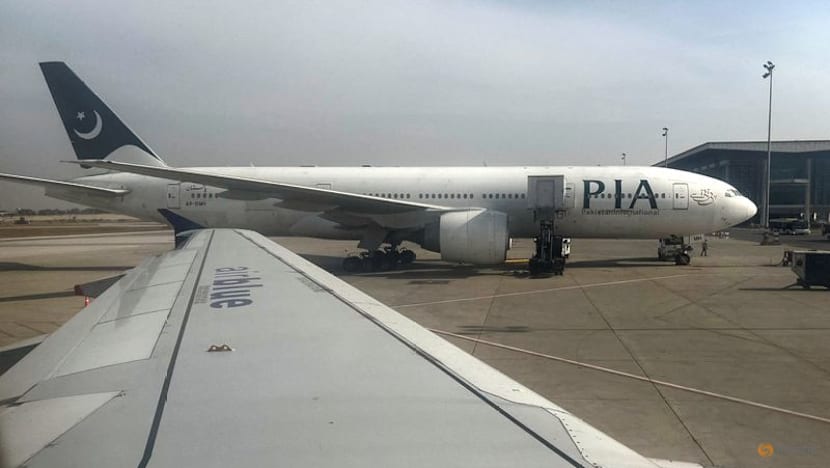From pride to burden: Pakistan’s national airline set for privatisation amid IMF pressure
Once a global icon, Pakistan International Airlines is now debt-ridden and up for sale as Islamabad moves to stabilise its economy.


This audio is generated by an AI tool.
ISLAMABAD: Pakistan is moving closer to selling a majority stake in its national carrier Pakistan International Airlines (PIA), which has been seen as a drain on the country’s economy.
The process is in its final stages, said Finance Minister Muhammad Aurangzeb according to local media reports.
The sale is a key condition under Pakistan’s US$7 billion International Monetary Fund (IMF) bailout, which requires the government to offload loss-making state-owned enterprises to stabilise the economy.
The airline was once a symbol of national pride and considered one of the best carriers in the world in the 1960s and 1970s. Among its early innovations were in-flight movies and cabin crew uniforms designed by Queen Elizabeth II’s dressmaker.
But the airline’s fortunes have since declined sharply.
Saddled with debt and struggling to modernise, PIA has become a financial burden on the state – one that the government hopes privatisation can help relieve.
Over the past decade, PIA has accumulated losses amounting to about US$2.5 billion, with nearly a third of its fleet of 30 aircraft grounded due to age.
“There needs to be investment in the fleet of PIA. There needs to be investment in the overall business efficiency of the PIA,” said the airline’s spokesperson Abdullah Hafeez Khan.
“These things can actually come from the private sector if a good group or if there is a large investor who has the muscle to actually pull it off,” he added.
CLEARER SKIES AHEAD?
Recent restructuring efforts have started to show results.
PIA posted a pre-tax profit in the first half of this year – its first such gain in two decades.
The airline also resumed flights to Europe in January after a four-year ban over safety issues. It is now reapplying to fly to the United Kingdom, a key lucrative market.
An attempt at privatisation last year attracted only a single lowball offer amid investor concerns over limited management control.
This time, the government is selling a 75 per cent majority stake. Bids are expected from four domestic groups, including a military-backed conglomerate.
The government is also moving to privatise airport operations and services, beginning with the capital’s main hub – the Islamabad International Airport.
“Islamabad is the first one, and I am hoping after this, once we successfully bring the private sector to Islamabad, then we will have more airports go into the private sector hands,” said Muhammad Ali, chairman of the Pakistan Privatisation Commission.
CHALLENGES AHEAD
But PIA does not have as many planes as a national carrier should have, noted Ali.
“PIA has routes, but it doesn’t have the planes to fly. If it can get the planes either at the lease or whatever way it can invest in them, then profitability can improve tremendously,” he told CNA.
On top of that, the prospect of privatisation has triggered protests from the airline's employees, who fear job losses.
Hidayatullah Khan, president of the PIA employees union, said that whoever takes over the airline is likely to suspend all current employees, and those willing to rejoin will be hired on a contract instead of a permanent basis.
The government hopes to complete the airline’s sale by the end of the year, aiming to stabilise Pakistan’s debt-laden economy and restore investor confidence.
While officials have touted privatisation as a lifeline, experts said any deal alone will not have much impact.
Instead, they said sustained progress will depend on whether Islamabad can push through broader policy and regulatory reforms – beyond just one landmark sale.
“You attract foreign direct investment; you increase your productivity. That is the only way to get rid of the IMF,” said Sajid Amin Javed, deputy executive director of non-profit research organisation Sustainable Development Policy Institute.
“Selling the PIA will not solve your IMF problem or all the economic problems.”














